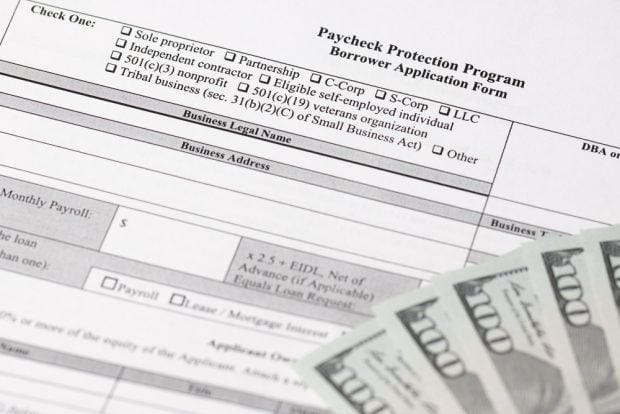 Source: Shutterstock.
Source: Shutterstock.
The Paycheck Protection Program that provided small businesses with loans to stay in business through the coronavirus crisis has been plagued by waste and fraud, and lenders are — in part — to blame for the problems, the Democratic staff of the House Democratic Coronavirus Crisis Subcommittee charged Tuesday.
"The lenders are the first line of defense against waste and fraud," the subcommittee staff said in the report. "Lenders were given a standard PPP application form that they could then adapt to their own processes and systems."
Recommended For You
However, loan applications for millions of dollars in loans omitted basic information, such as the name and address of the applicant. And yet, the Small Business Administration approved many of those loans, the panel said.
"These missing data fields raise concerns whether the SBA, and the lenders who approved these loans, have sufficient identifying information on these PPP borrowers," the subcommittee staff said.
"The subcommittee's analysis shows that PPP helped millions of small businesses and non-profit organizations stay afloat during the coronavirus crisis, but a lack of oversight and accountability from SBA and Treasury may have led to billions of dollars being diverted to fraud, waste and abuse, rather than reaching small businesses truly in need," Subcommittee Chairman Rep. James Clyburn (D-S.C.) said in releasing the report.
Republicans on the subcommittee released their own report in an effort to counter the Democrats' narrative.
"The Trump Administration's fast and efficient work with financial institutions across the country should be commended," the Republicans said. "Indeed, SBA and Treasury officials, and their counterparts at financial institutions, worked around the clock in March and April 2020 to stand up and execute the PPP. Their efforts may have prevented an apocalyptic scenario for American small businesses."
Congress and the Trump Administration enacted and implemented the PPP quickly earlier this year, leading to a flurry of guidance and interim final rules for lenders and loan applicants. Lenders, including credit unions, expressed constant frustration with guidance they said was confusing.
The PPP made more than 512 million loans worth more than $525 billion, according to the SBA. Almost 5,500 lenders participated in the program, including 719 credit unions with less than $1 billion in assets. The authorization for the SBA to make loans expired on Aug. 8, although the program still had almost $134 billion available to loan.
Congress and the Trump Administration have been struggling with the assistance that should be provided in the next pandemic economic stimulus bill. Treasury Secretary Steven Mnuchin said that Congress and the administration should immediately agree on a new round of PPP lending.
He said there is "enormous agreement" on the PPP.
But Clyburn's staff said in their report that the SBA and Treasury must tighten oversight in the PPP to ensure that loans are going to eligible businesses.
"The Administration should exercise additional oversight to ensure PPP funds have only gone to eligible businesses," the Democrats said. "SBA's and Treasury's current audit plan — which includes audits of loans over $2 million and 'other loans as appropriate,' to be conducted only after the lender has submitted a loan forgiveness application — is plainly insufficient."
Specifically, the subcommittee's report included allegations that:
- More than $1 billion was loaned to companies that received more than one loan.
- More than 600 loans, totaling more than $96 million, went to companies excluded from doing business with the federal government.
- More than 350 loans worth $195 million were made to companies that previously had been flagged by the federal government for performance or integrity problems.
Republicans conceded that the "evolving nature" of the program's guidelines caused confusion. They added, "The urgent need to disburse funds to millions of small businesses, however, justified the expedited rollout of the lending program, as Congress intended."
They said that lenders and the SBA "worked tirelessly" to provide the much-needed loans. "The Trump Administration's fast and efficient work with financial institutions across the country should be commended," they said.
© 2025 ALM Global, LLC, All Rights Reserved. Request academic re-use from www.copyright.com. All other uses, submit a request to [email protected]. For more information visit Asset & Logo Licensing.






